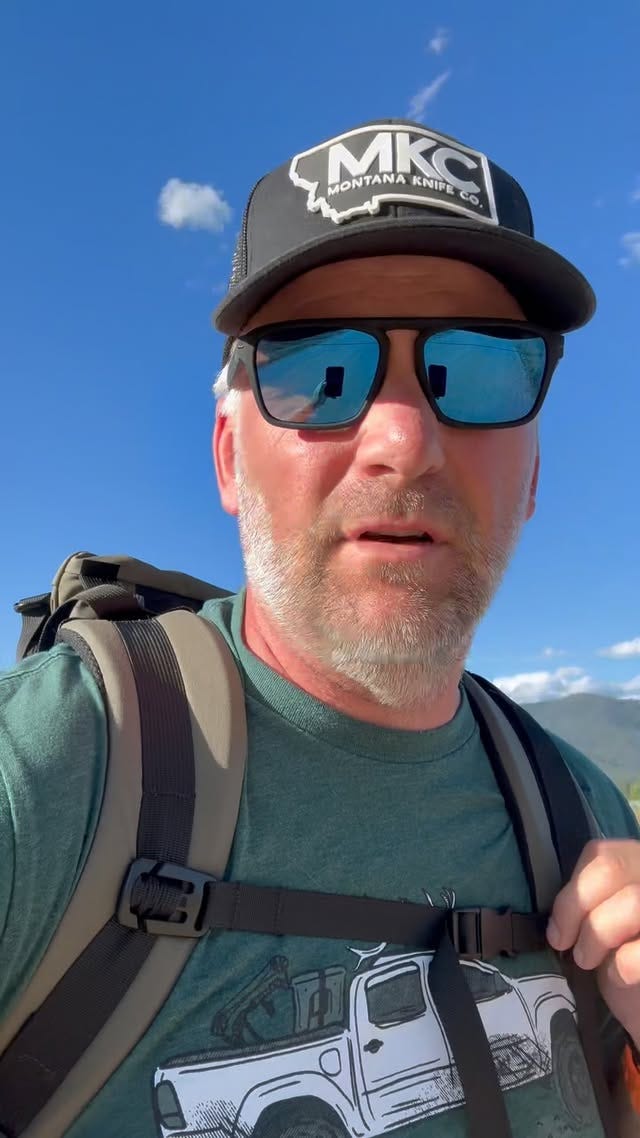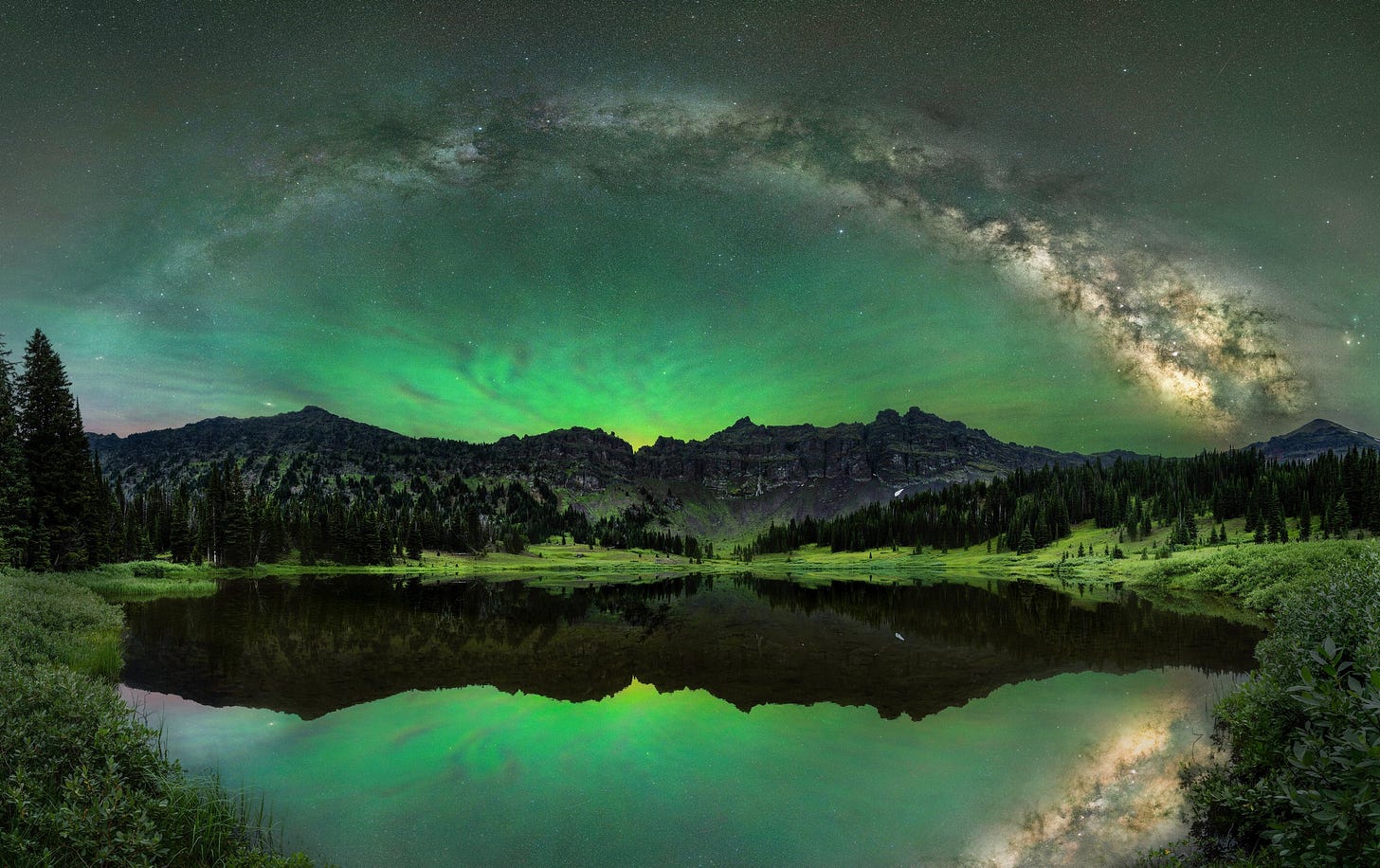The contents of "trixie" are now with the Debian Images team, who are building and testing all the .iso files you'll be able to download once the release is ready. #debian #debian13 #trixie #ReleasingDebianTrixie
Josh Smith is an entrepreneur, a right-wing podcaster, a CEO, and one of Donald Trump’s most ardent and outspoken supporters. And Josh Smith ain’t holding back; he’s “pissed” because he just figured out that Trump’s “dumb as it can get” tariff policies are stabbing his American small business and jeopardizing the working people he employs.
Smith is proud of his company, and he should be. Montana Knife Company, which he founded in 2020, is a classic entrepreneurial success story growing like a rocket ship during the presidency of Joe Biden. The up-from-the-bootstraps business started in Josh’s garage, now employs more than 80 people, and produces high-quality products here in America. MKC builds knives that are coveted by serious hunters like me; the sort of blades that will someday be passed down through generations.
Like many small business entrepreneurs, Smith is a risk taker, too. In 2024, at about the same time Donald Trump was campaigning on bold but unhinged promises to institute dangerously hairbrained tariffs, Smith, who was then 44, decided to risk of further business expansion with a plan to hire up to 70 more employees and build a shiny new 51,000 square foot facility just west of Missoula complete with lots of new machinery and steel, much of it imported.
Even as almost every credible economic expert warned of the danger and lunacy of Trump’s tariff promises, Josh either did not believe it or did not grasp Trump’s complete lack of economic acumen, and throughout the campaign, Josh Smith never wavered from his long and vocal cheerleading for all things MAGA. Just as he had for several years prior, Smith continued the use of his “The Josh Smith Show Podcast” as part marketing tool and part right-wing megaphone for his personal politics, regularly treating guests like Tulsi Gabbard, Donald Trump Jr, and Republican Senator Tim Sheehy to long, MAGA-fawning conversations. In April 2024, Smith even posted about personally meeting Trump, and then, in January, he hosted a well-attended inaugural watch party in D.C.
Even well into 2025, when Trump’s tariff bombs were starting to explode, Smith kept up the cheerleading, mocking companies that added tariff surcharges to their invoices and posting a social media video in which he held up an egg, signifying that tariffs would impact his company and his workers exactly ZERO, the same as a goose egg. Smith then went on in that video to repeat Trump’s idiotic talking points: “We’ve been preaching this all along, we are American-made, buy American, and you don’t have to worry about this shit.”
But it turns out that the experts were right, Josh and Trump were wrong. Smith and his employees do, in fact, have to worry about this shit. Months after his first mocking video, as Josh came to terms with the tariff charge increases for his new factory, he was first shocked and then angry. A few days later, he posted a new video in which he states:
“Alright, Donald Trump, I’ve got a bone to pick with you and your administration…I’m a bit pissed about your tariffs…why am I paying tariffs on that manufacturing equipment, it makes no sense, it’s about as dumb of a government policy as government policies get…you can not buy that equipment here.”
Josh also rightfully asks,
“Why are we talking so much about Epstein, no granted he’s a piece of shit and I am also not happy with Trump about that…Maybe call me Mr Trump.”
CLICK ON THE FOLLOWING VIDEO TO WATCH:
But Smith was not done, following that post and in his most recent podcast episode entitled “Tariff This”, Smith further detailed the exact impacts of Trump’s policies on people like him. The exact sort of impacts that will slow down job growth and American manufacturing. The exact sort of impacts that hit working people and don’t impact billionaires like Trump or Bezos. This is the posted episode description:
This episode of The Josh Smith Show dives into the messy and current world of tariffs and how they’re hitting businesses Montana Knife Company hard. Josh breaks down the real impact: a 50% tariff on European steel, potentially the only option after Crucible Technologies went bankrupt. Last year, a 36% tariff would’ve added over half of a million dollars to MKC’s steel bill alone. Then there’s the German-made bevel grinders, essential for their new 51,000 sq. ft. Montana facility, facing 30-50% tariffs that could turn a $400,000 machine into $600,000. Josh argues tariffs on finished goods like knives make sense, but taxing raw materials and equipment unavailable in the US? That’s hurting the very businesses trying to bring manufacturing back. From Niagara Steel rolling European slabs in New York to MKC hiring local Montanans and engineers, these policies risk slowing growth and killing jobs. Josh calls for smarter, nuanced policies and urges leaders to talk to business owners to avoid wrecking the companies they claim to support.
A few days later, on Aug 7, Trump, apparently immune to the pleas of small businesspeople like Josh Smith, or the red warning lights of the drastic downward revision in jobs numbers, increased tariffs again at midnight and then celebrated by posting this on social media:
I don’t want to dunk on Josh, and I damn sure do not want all the good people who work at MKC to suffer. But I do think we should demand better of people like Josh Smith. He’s plenty smart enough to have known that these Republican MAGA policies would be bad for Americans. He can see that his Republican representative and senator are enabling this lunacy, and yet he refuses to say he’ll vote against them. It’s hard to take him seriously if he won’t even vote against the people causing this pain.
We can all see that this is bad for working people because tariffs impact the goods that working people need and the jobs they depend on. Just like everything else Trump does, this regressive policy will help Billionaires and hurt small businesses. I’m glad that Josh Smith sees the truth on tariffs now, but the same truth is equally evident on health care, tax breaks for billionaires, and gutting public lands to benefit big corporations.
Welcome to the new morning, Josh - breathe deep, there’s a lot more coffee to smell.
Part 1 of 3: To be continued
On a photography expedition such as the one I co-led from May 1 to May 11 this year, participants come to capture the Grand Canyon’s awe-inspiring landscape and spend ten days immersed in its depths. But the Grand Canyon, like other national parks, is not just a wilderness. It is also a place of people—those who work, journey through it, and who, in the process, have made it the special protected place that it is today.
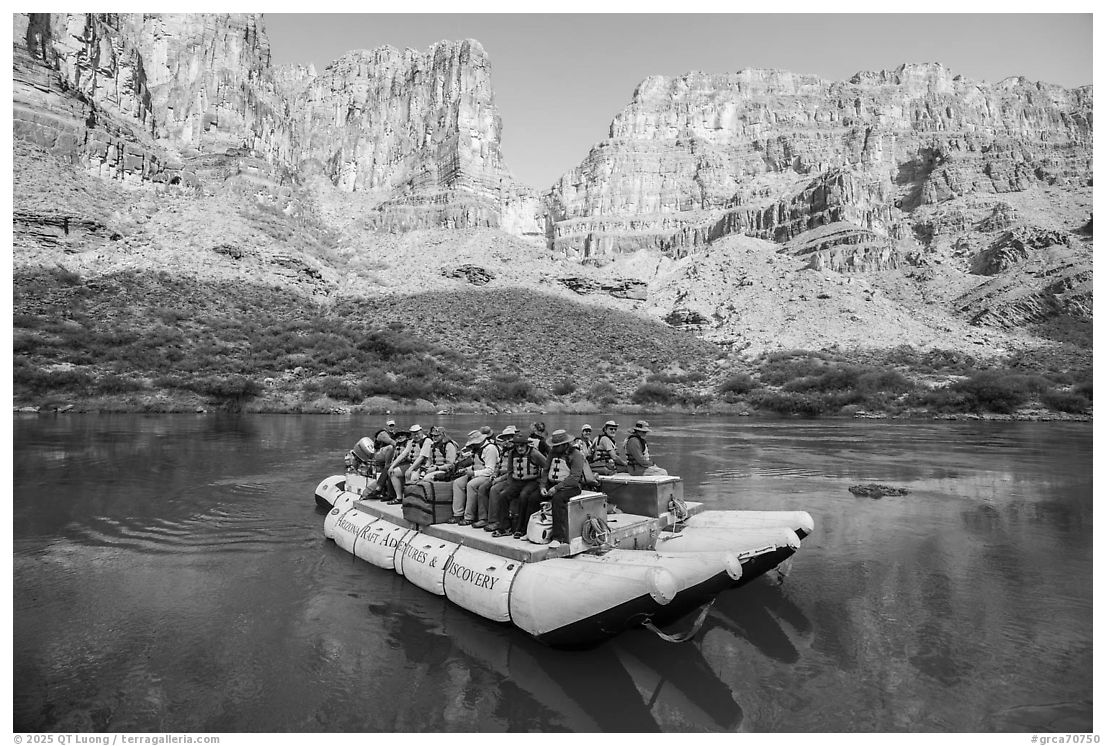
A river trip through the Grand Canyon is not just an adventure; it is a shared experience. For ten days, we lived in close proximity, helping each other with the myriad tasks required by life along the river. Once the raft was beached, camera bags, tripods, overnight bags, tents, sleeping kits, mattresses, chairs, tables, and kitchen supplies all had to be unloaded. This was done most efficiently by forming a human chain, passing objects from hand to hand. That was the extent of the work required, as the river guides managed everything else with practiced efficiency. The camaraderie we developed extended beyond our group. Each time our faster motorized raft overtook an oar-powered party, our guides paused to exchange greetings and plans, and participants from both groups waved cheerily. There are no reservations for campsites along the river, but rather than competition, there is collaboration. Our guide, a seasoned professional, considered it poor form to race ahead of oar parties struggling against headwinds just to claim a site. Fortunately, other groups understood that photography goals took us to a specific destination, and with one exception, we always secured our preferred camps.
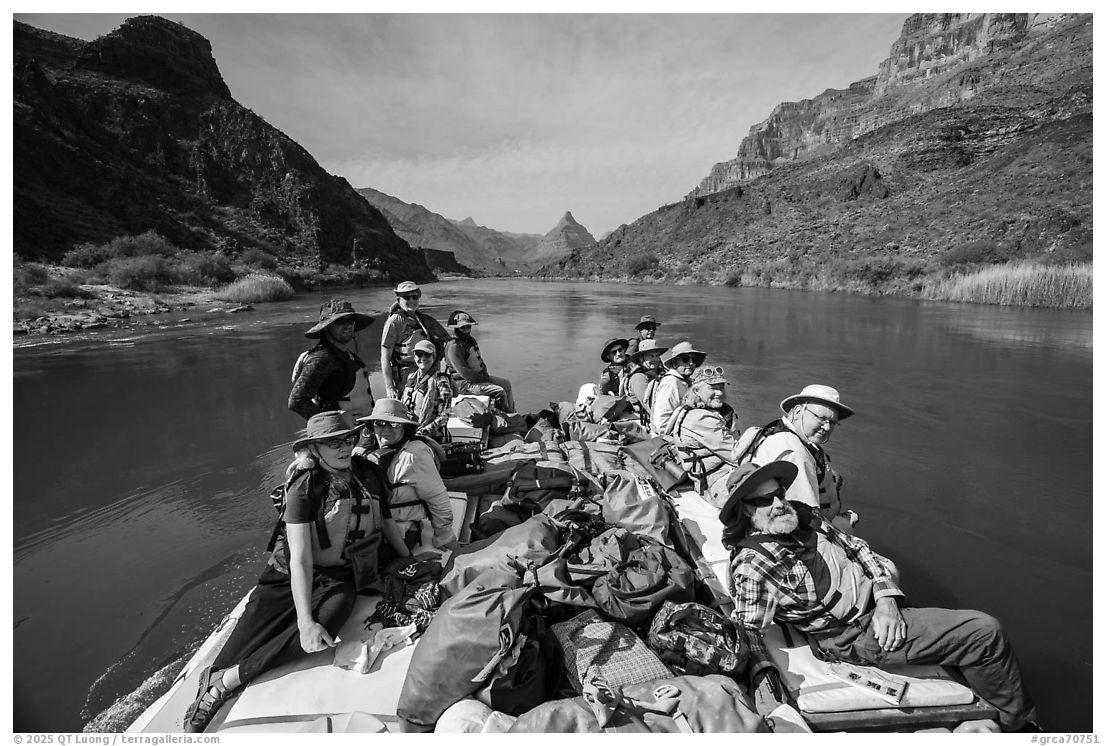
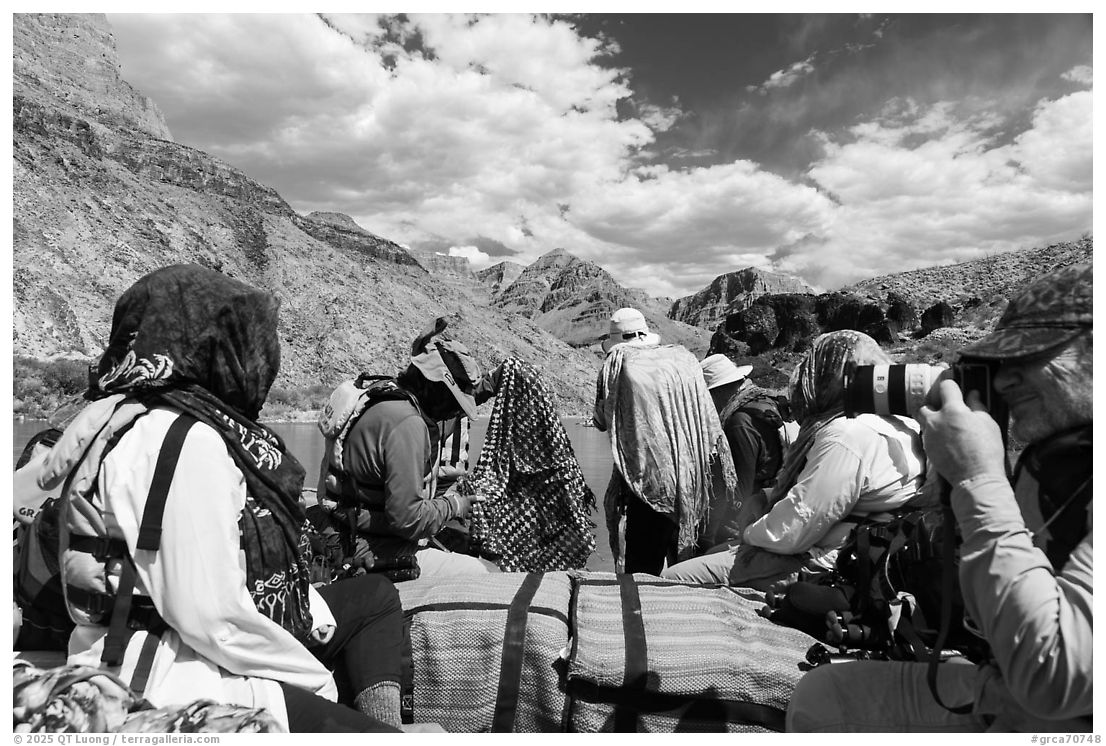
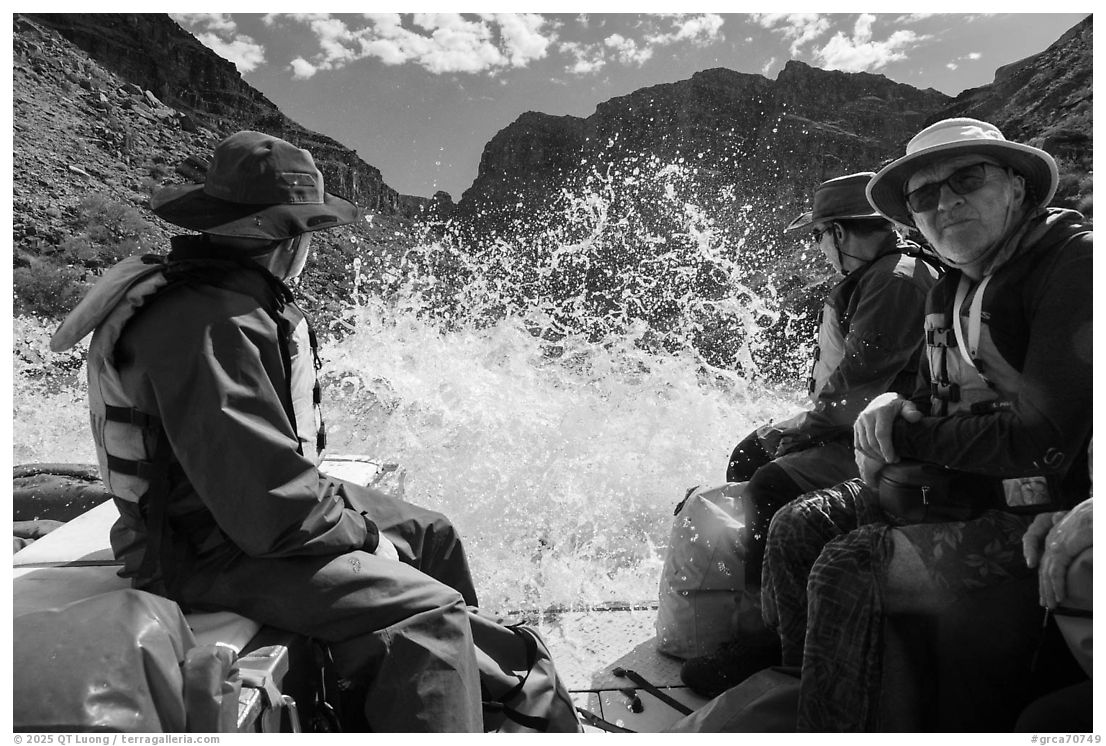
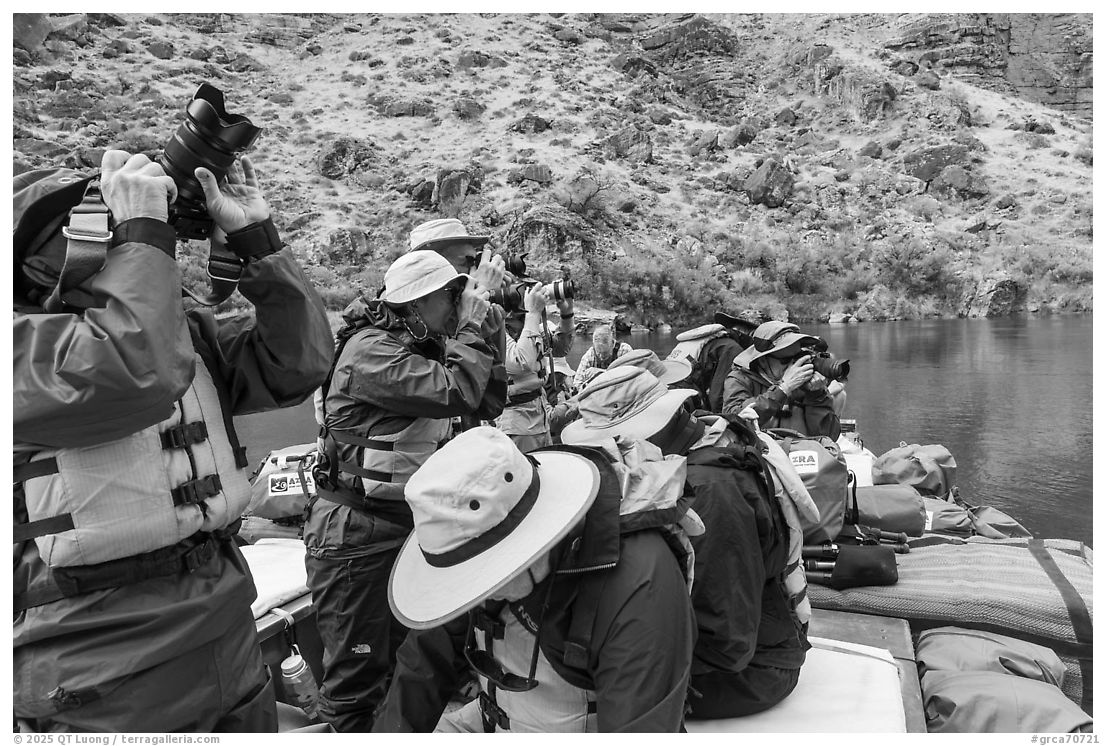
What makes this journey extraordinary is not only the scenery but the simpler rhythm of life it enables. Unlike remote wildernesses into where cell towers now often reach, the steep canyon walls block all signals. Disconnected from the modern world, we found ourselves immersed in a quieter one. Aside from the fairly quiet hum of the raft’s motor, the only sounds were the roar of the rapids, the splash of the river, and the voices of our companions. No traffic, no alerts, no background noise. Even time itself lost relevance, replaced by a natural cadence shaped by daylight. On such a trip, we do not simply see the canyon—we live and breathe in it.
The day began with a coffee call at 5:30 a.m.—announced by a guide blowing a conch shell, which requires surprising skill to sound properly. After breakfast, we’d break camp, pack our gear, and load the boat while watching for morning light. We were on the river by 8 a.m., typically stopping for hikes and lunch before arriving at our next camp by mid-afternoon. That left time to walk, photograph, or simply sit in the quiet before dinner around 6:30 p.m. The meals, prepared from fresh ingredients, were unexpectedly excellent for a trip in the wilderness. The river-running industry has refined its logistics to an art, including handwashing and dishwashing stations, toilets, and food storage. By 8 p.m., the canyon went dark. Those not venturing out for night photography were happy to retreat into tents under the stars. One night, when I offered instruction at 2 a.m. – because of the near-full moon that set at 4 a.m. – only one participant showed up.
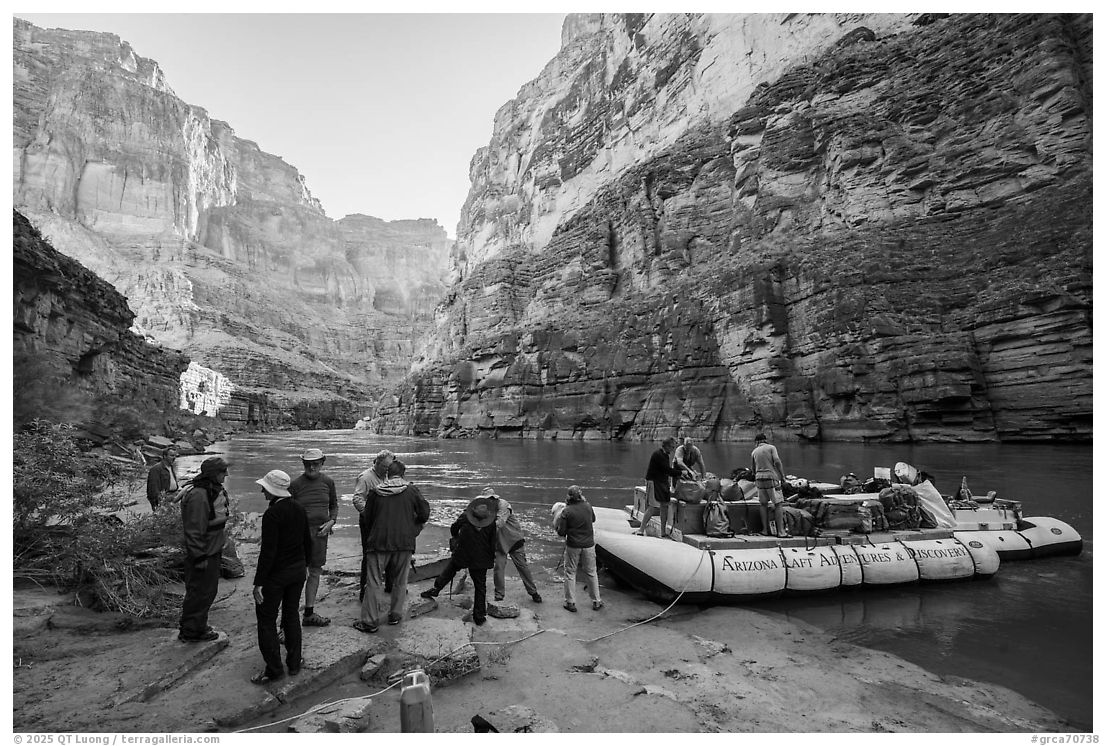
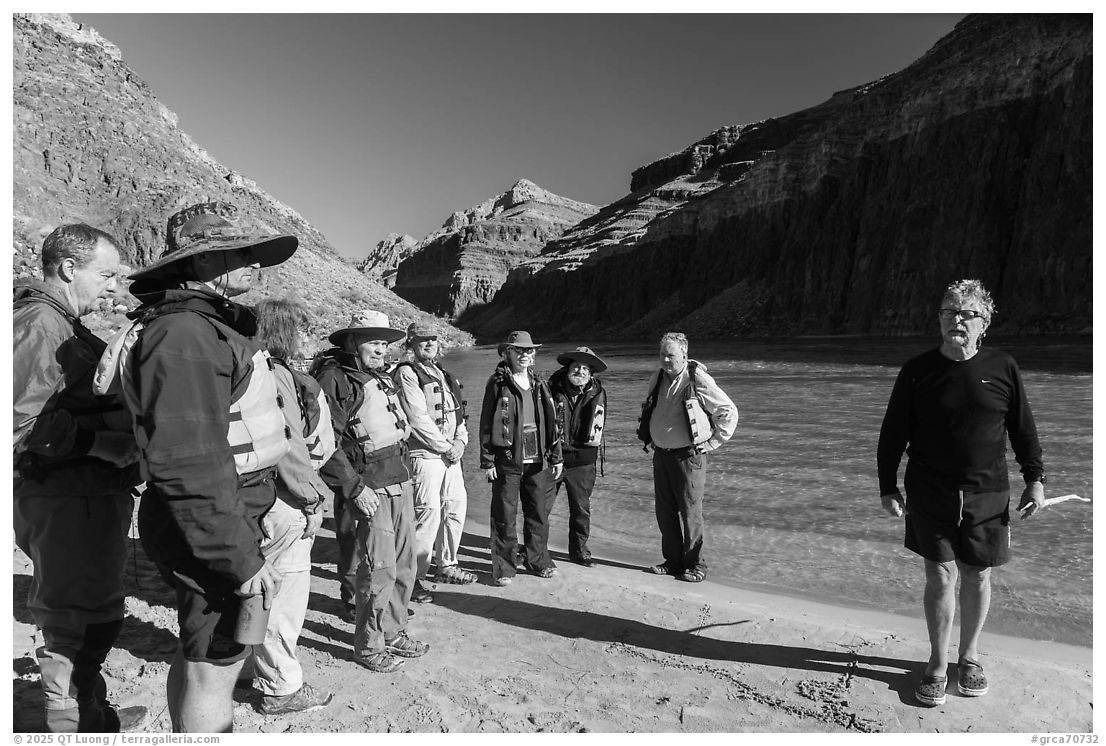
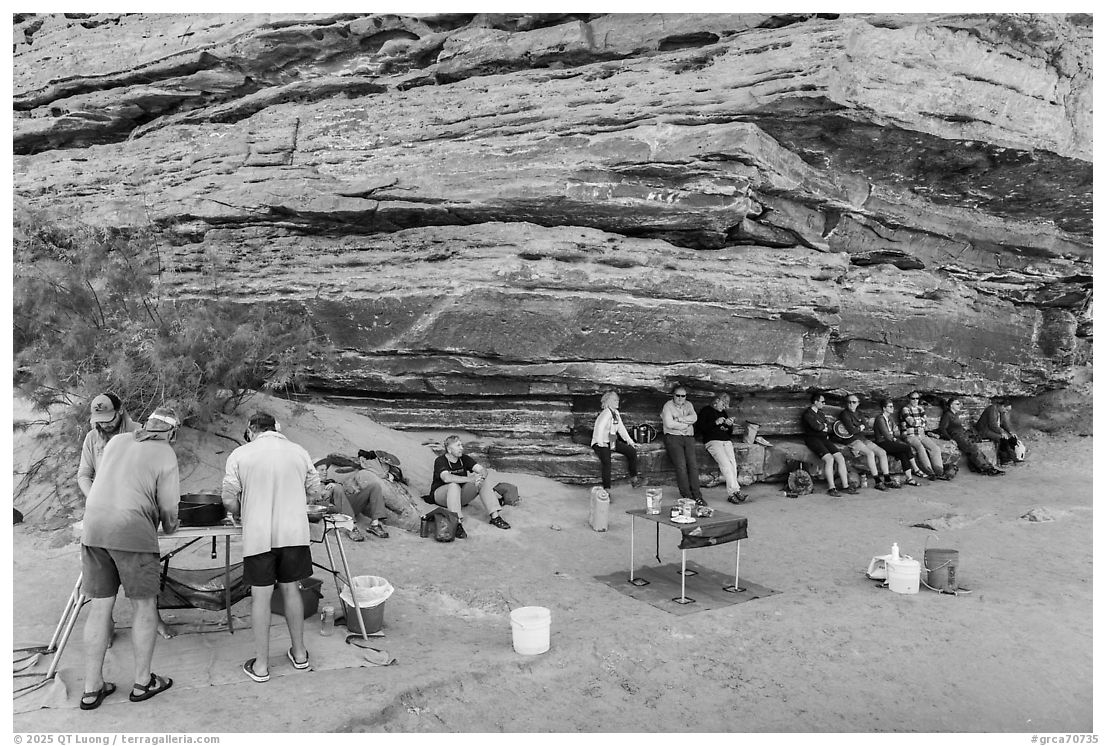
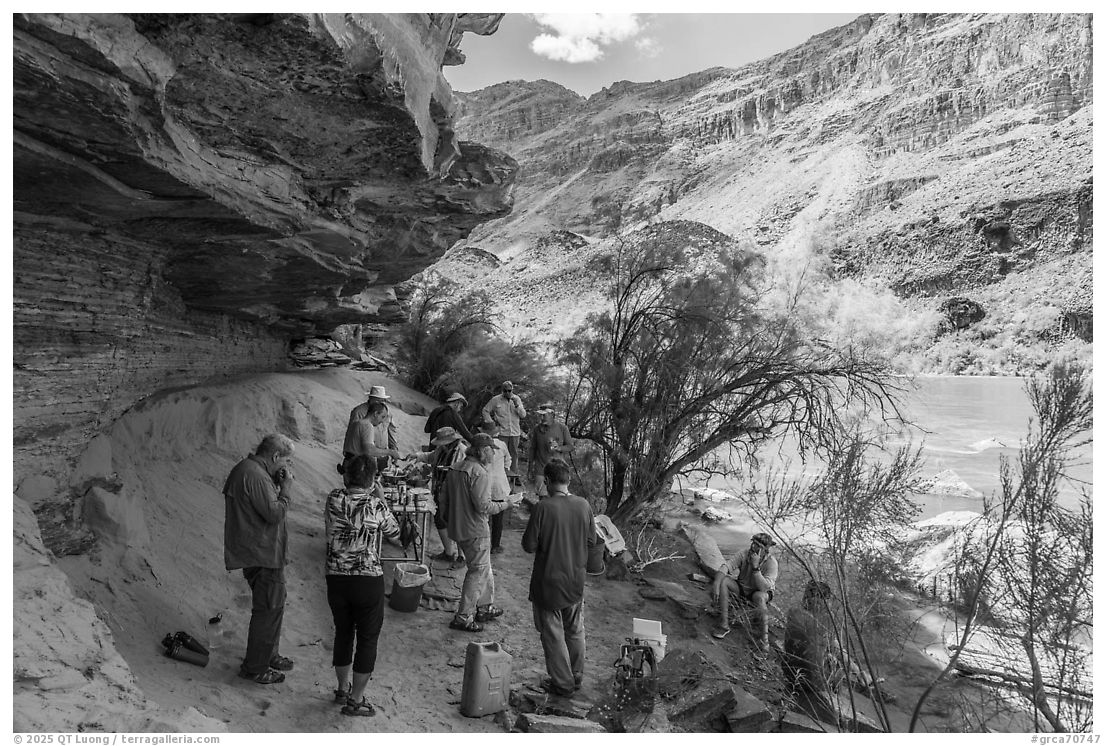
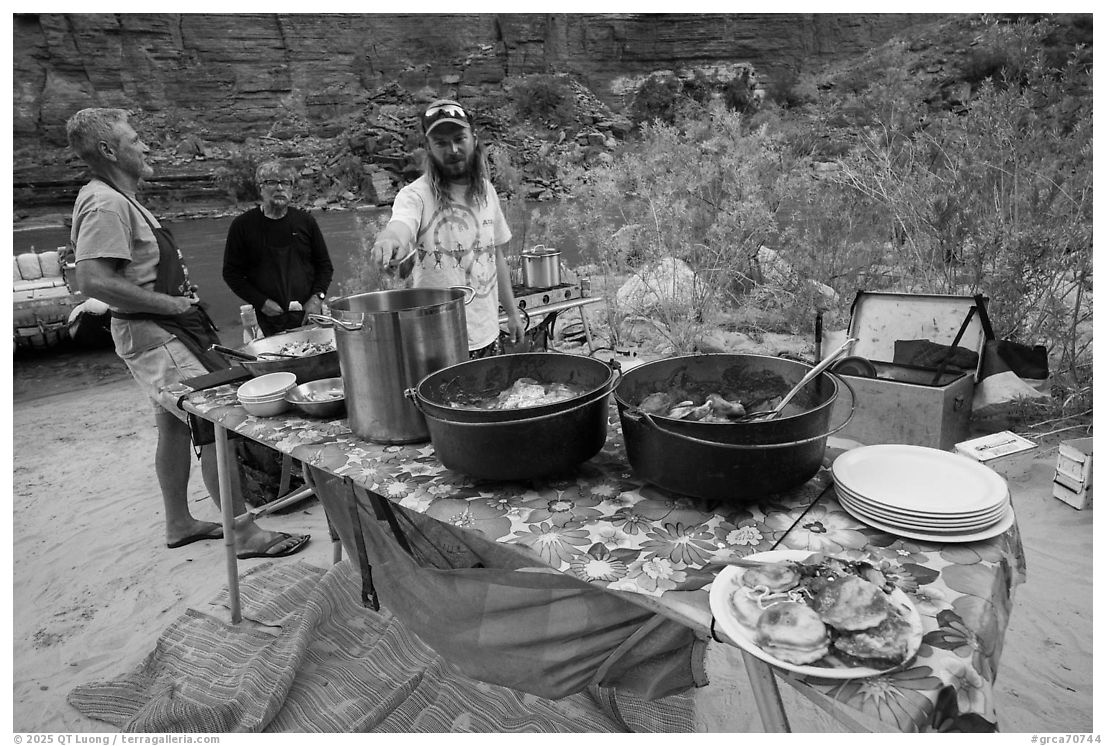
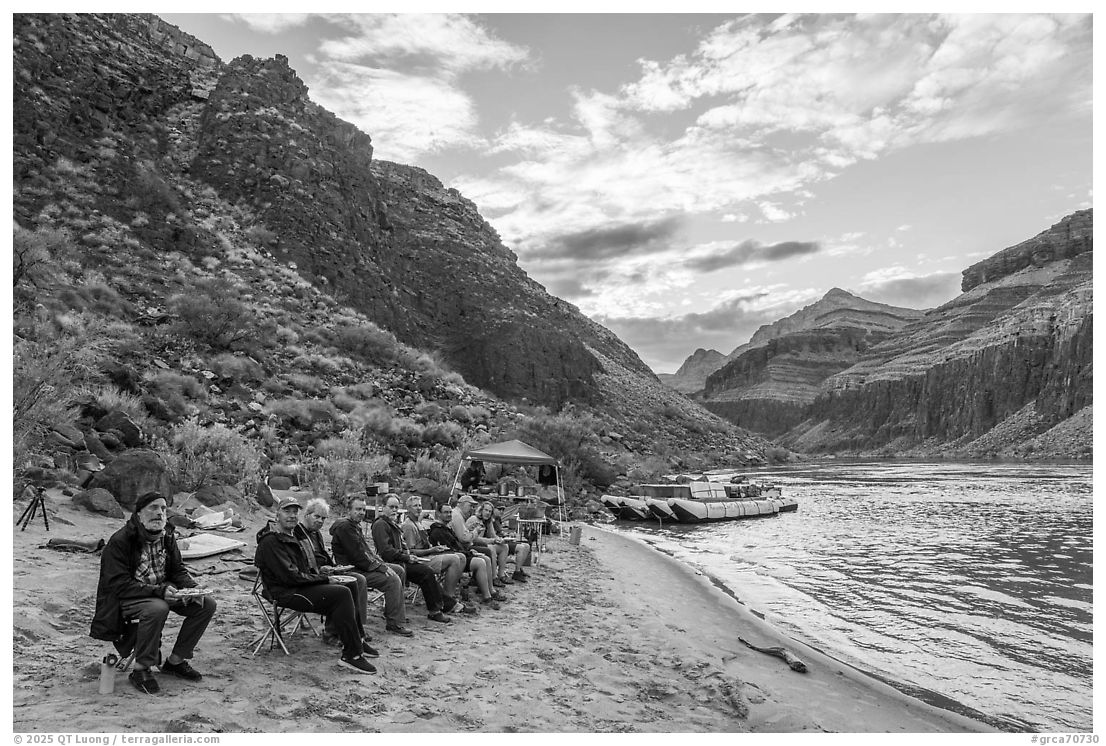
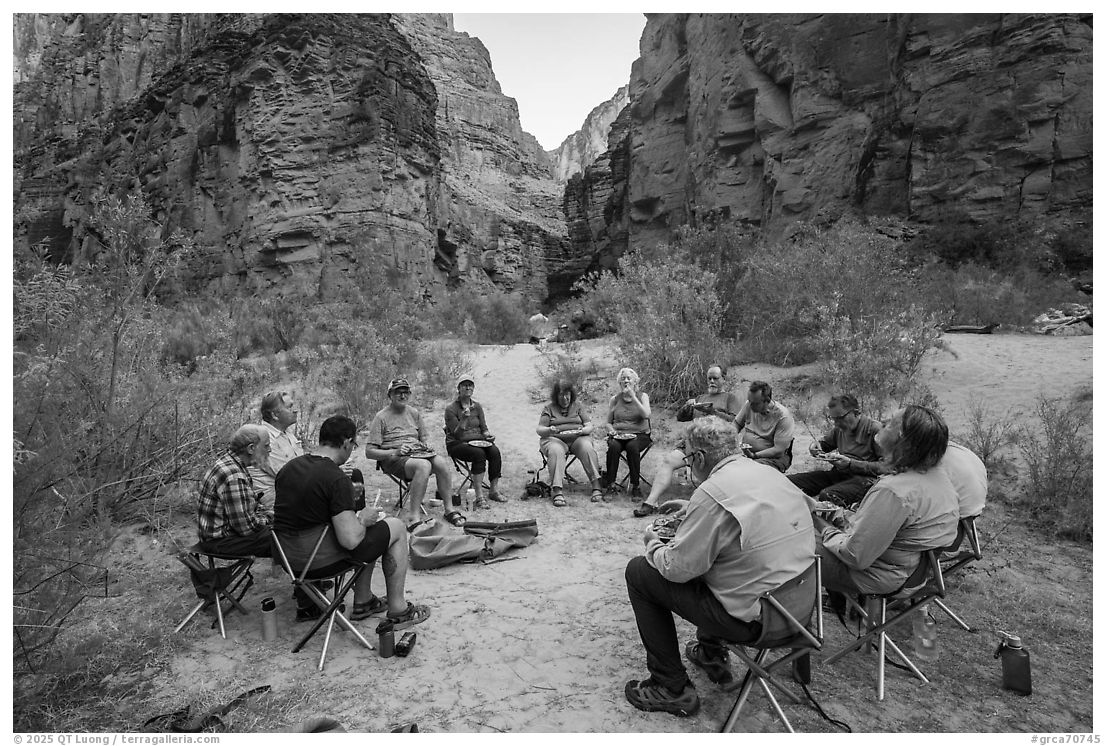
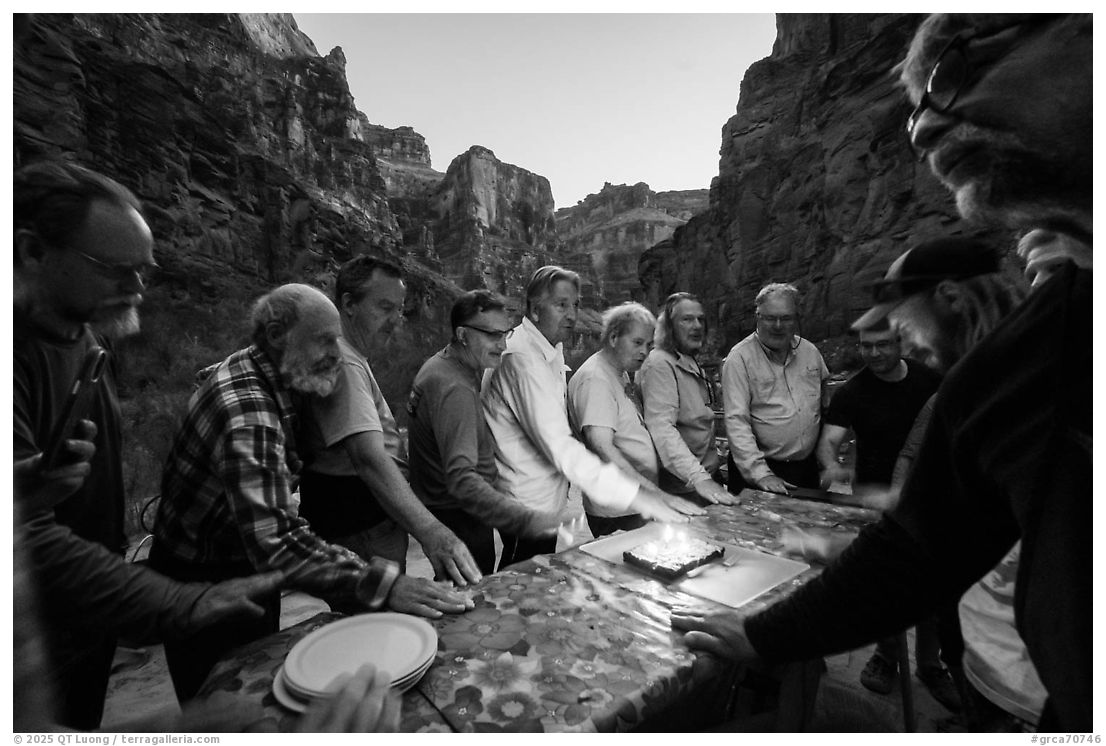
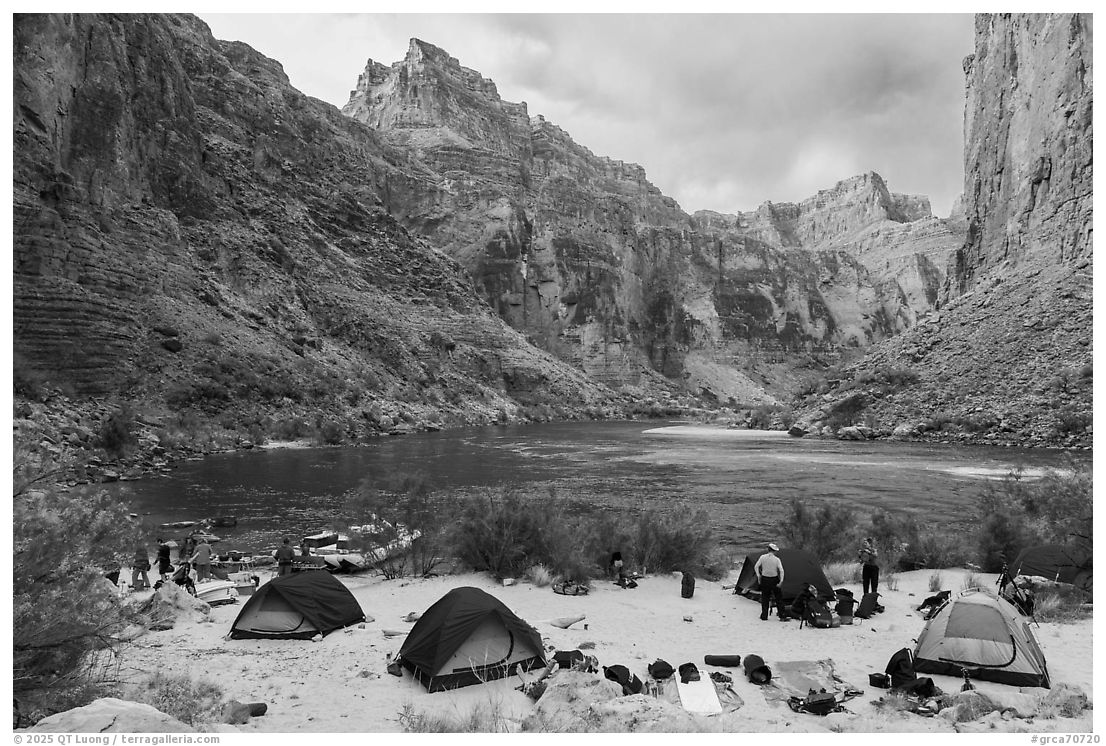
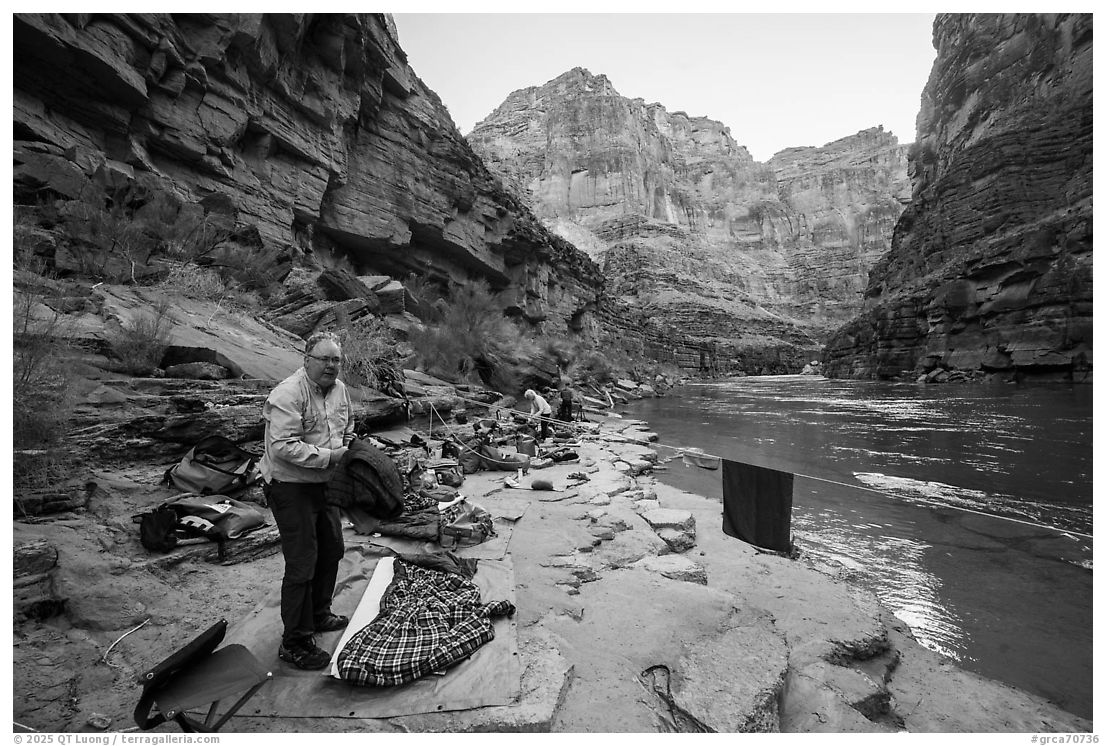


Although nearly five million people visit Grand Canyon National Park each year, about 25,000 raft the Colorado River through the canyon. Of those, over three-quarters are on guided commercial trips such as ours, which was guided by Ed and Finger from Arizona Raft Adventures (AZRA) with the assistance of Doug. Private permits are highly competitive, with fewer than one in fifteen applicants receiving a permit via lottery. Add to that the logistics and whitewater skills required, and it’s clear that such a journey is not easily accessible. That said, a guided trip remains demanding—but manageable. I still lost weight despite eating more than I usually do. Most people can enjoy it: I was the second youngest in our group, and our oldest participant was a 78 year old. Not everybody was in great shape, but we all made it. Despite the high traffic relative to other backcountry rivers, the campsites were remarkably clean—thanks to a strict “carry-it-out” ethic and careful toilet management. The National Park Service enforces tight control over the river corridor: no more than 150 people are permitted on the river each day, and no individual is allowed more than one trip per year.
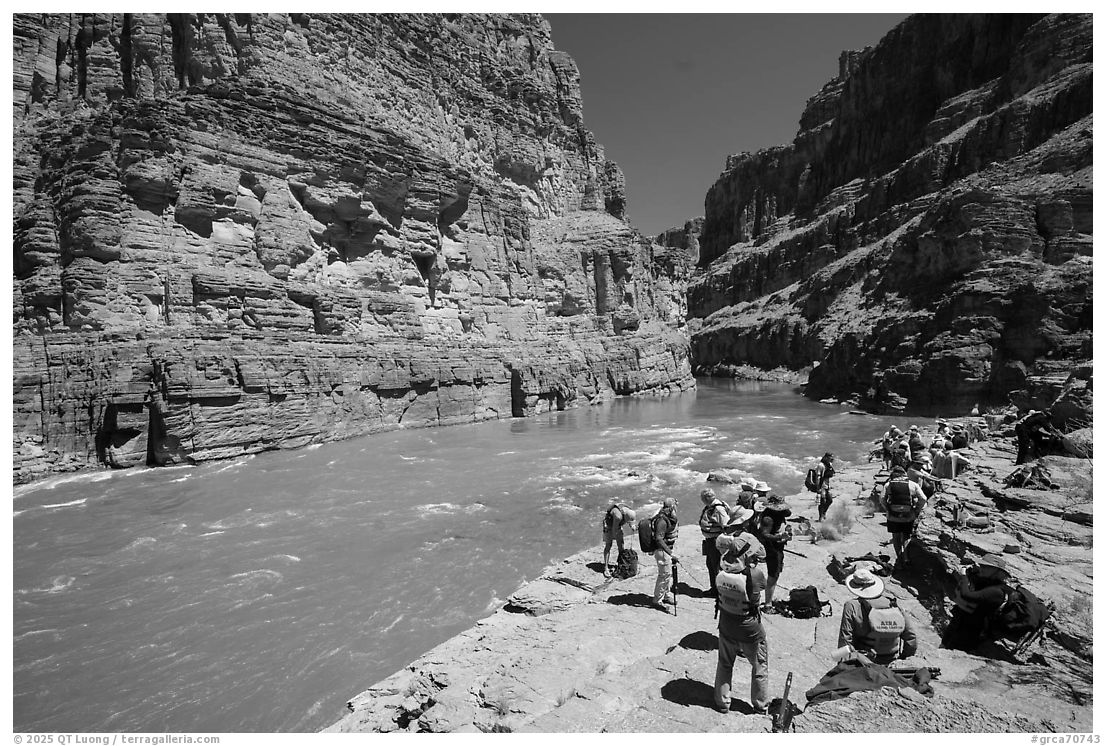
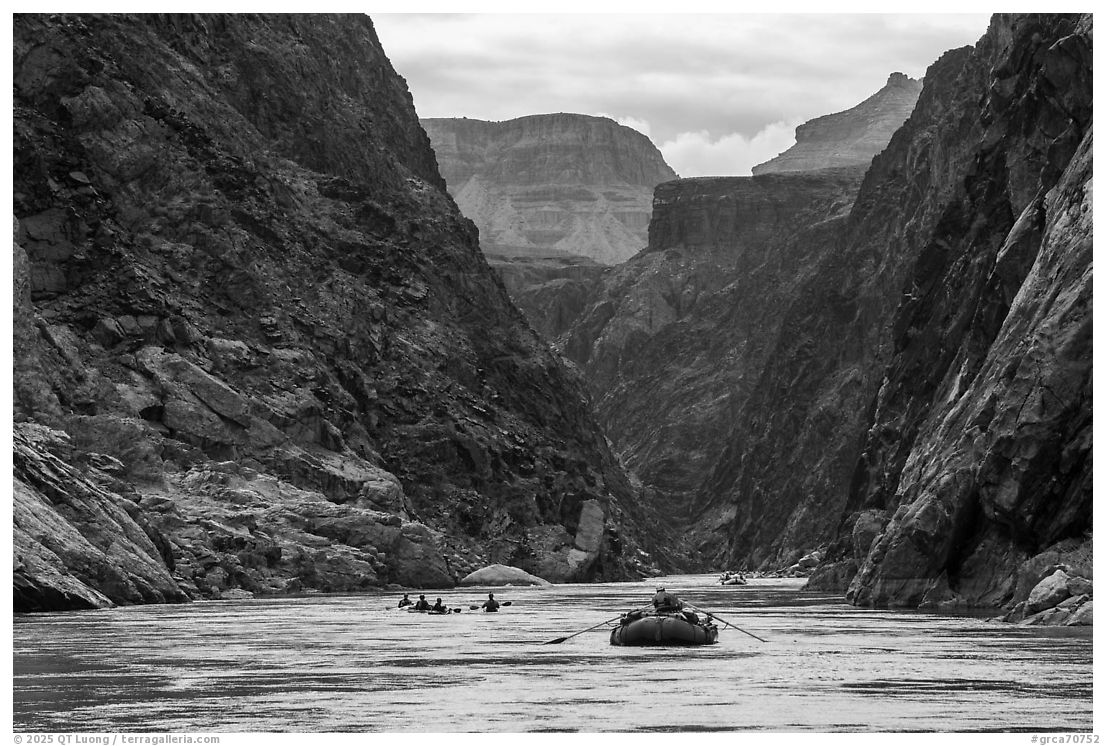
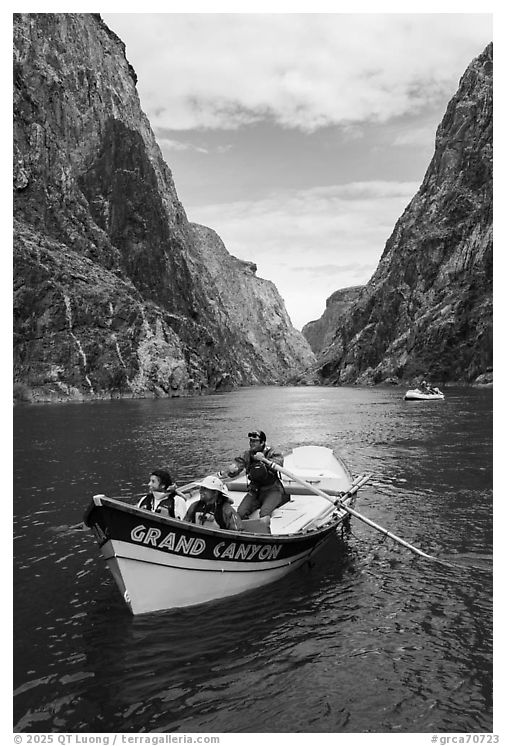
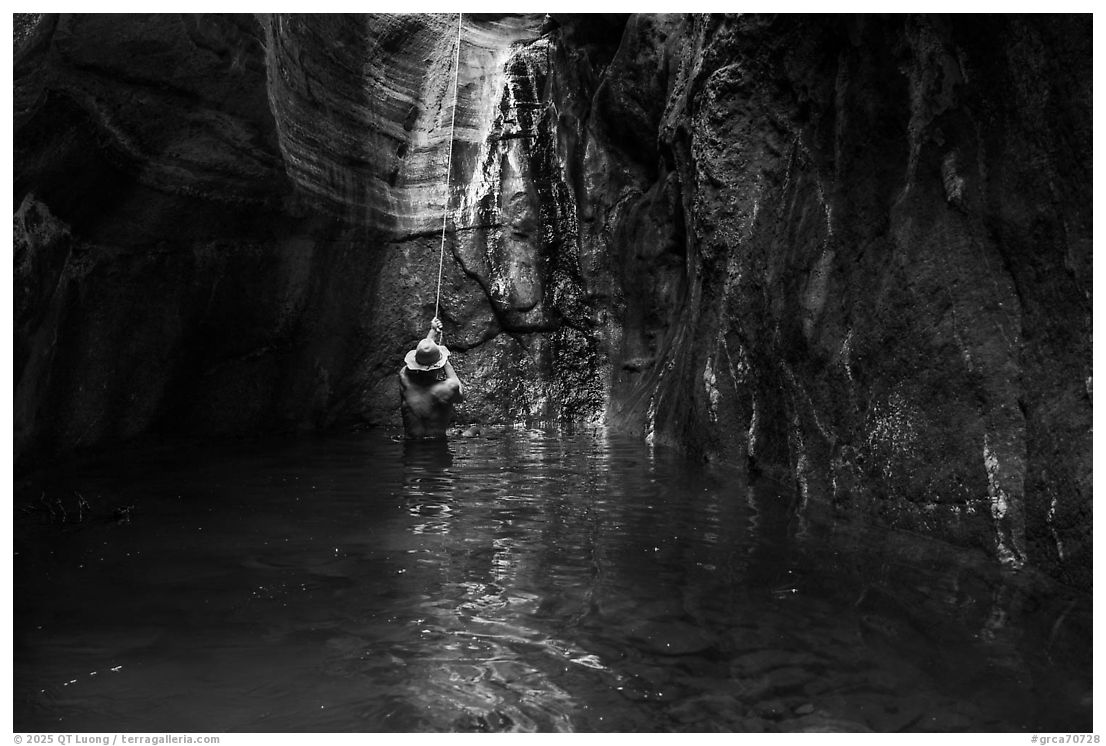

That scarcity makes the experience even more resonant, especially considering the river’s symbolic weight. Although the Colorado River through the Grand Canyon is arguably the most iconic river in the country, it is neither designated as a Wild and Scenic nor part of the Wilderness system. And yet, it played a central role in shaping modern environmentalism. Although relatively few have floated the river, those who have left an outsized mark. In the 1960s, the U.S. Bureau of Reclamation proposed two dams—one in Marble Canyon, one in Bridge Canyon—that would have flooded parts of the river corridor. The structures were designed to be invisible from the South Rim overlooks to avoid detection by tourists. But the rise of river-running tourism changed the political landscape. Ironically enabled by the controversial Glen Canyon Dam upstream, this growing community of river travelers had come to see the canyon not only from above, but from within. The Grand Canyon was not only its iconic vistas, but the full river stretch between Lee’s Ferry and Lake Mead. River runners formed an alliance with environmentalists. The cornerstone of the successful campaign to stop the dams was the Sierra Club’s 1964 book Time and the River Flowing. Combining François Leydet’s impassioned prose with photographs by Philip Hyde and others, the book argued that the Grand Canyon was not just landscape. It was a living river. The campaign’s success in 1968 was a watershed for the modern environmental movement—proof that public imagination, art, and activism could protect even the most threatened places. The Grand Canyon dam fight was more than a battle over a stretch of river. It was about redefining how Americans value nature—not only as a spectacle, but as an experience. In using photography, publishing, and public engagement to influence policy, that campaign set a template for the environmental movement that continues to this day. Yet it was never just about geography—it was about access, experience, and human connection. That same spirit echoes in the photographs here: people not as intruders in nature, but as participants in its story.
In joining this river trip, we were not only following the water’s path—we were following in the footsteps of those who fought to keep it free. To float between these canyon walls is to understand the stakes of that victory: the stillness, the roar of the rapids, the shared work of living in rhythm with the river. Our presence echoes that earlier generation of photographers, writers, and ordinary citizens who believed that beauty alone was a form of advocacy. In choosing to witness and photograph the canyon from within, we, too, participate in a tradition that has shaped how America understands its wild places—not from above, but from inside them. By turning the camera toward those who share this journey, I hope to underscore that conservation is not just about places—but about how people live in, care for, and remember them. These images are part of my evolving interest in the human presence within natural systems—not as separate from the land, but as shaped by and shaping it in turn.
For me, this journey also marked a return to the origins of my work in public lands. I’ve increasingly turned my lens toward the spaces where nature and human life intersect—not just the untouched, but the entangled. Yet this trip reminded me that even the most celebrated landscapes remain vulnerable, and that their preservation owes much to those who saw experience itself as worthy of protection. To photograph the canyon today is not only to depict a place of grandeur—it is to acknowledge the legacy of those whose images and stories helped save it, and to carry that sensibility into new terrain where the line between wilderness and civilization is no longer so clear.

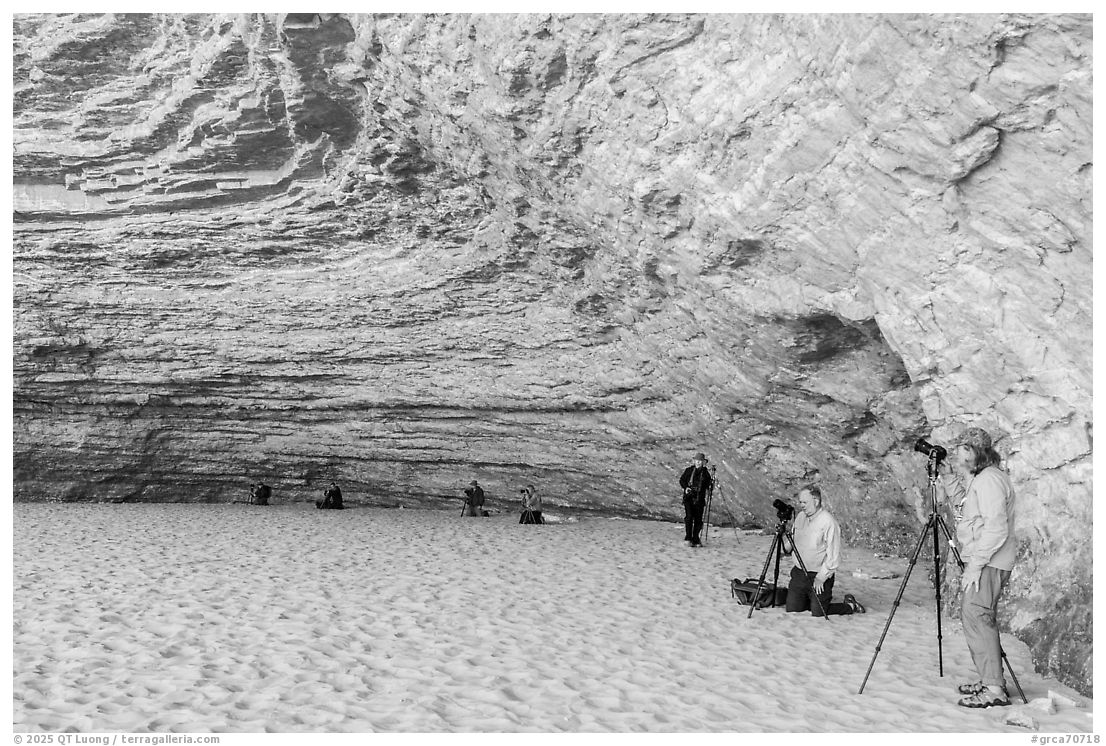
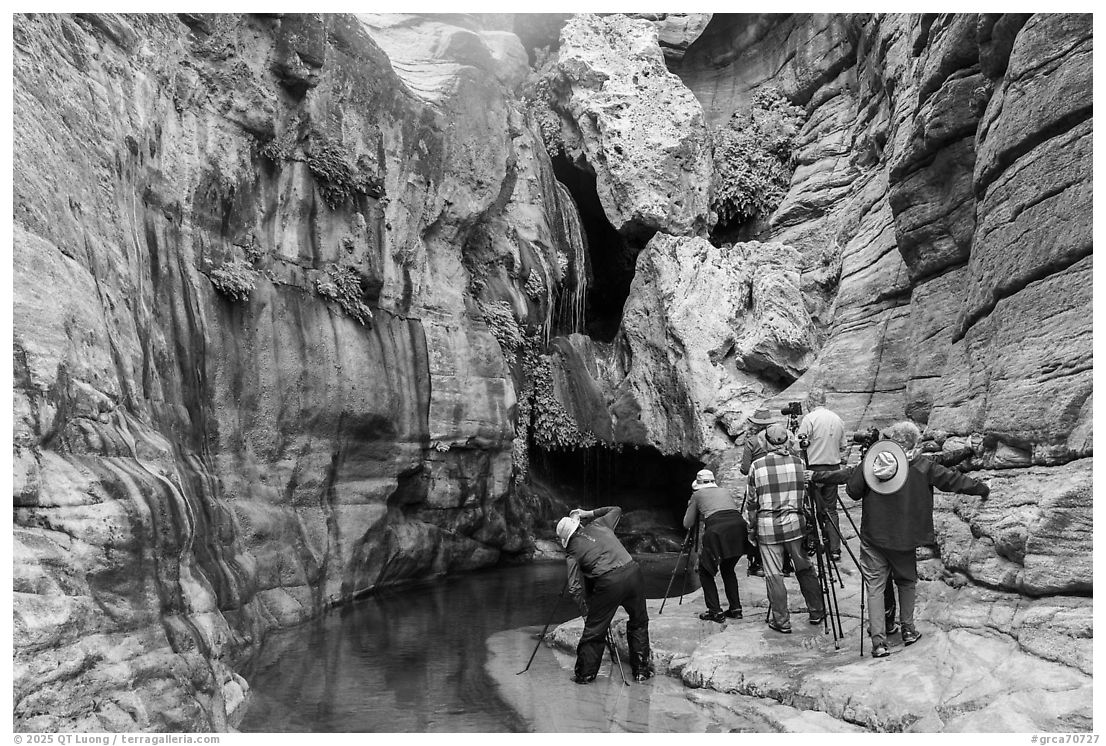


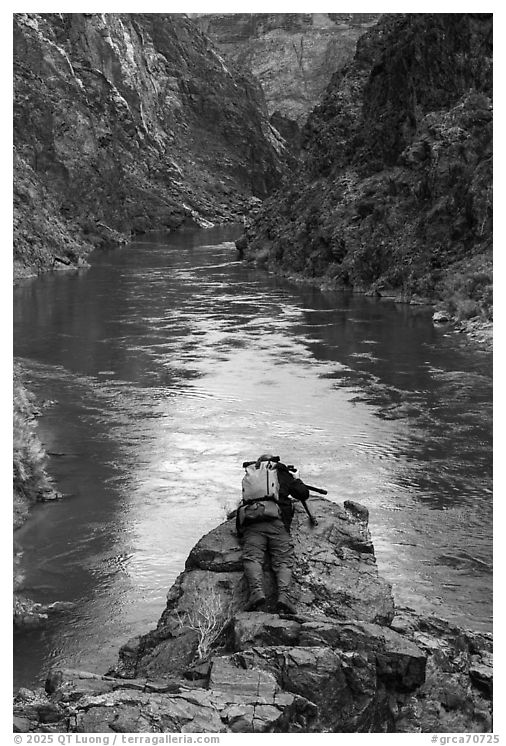


Part 1 of 3: To be continued
It’s Friday and so we’ll end the week with a pair of poems. Good Bones by Maggie Smith:
Life is short, though I keep this from my children.
Life is short, and I’ve shortened mine
in a thousand delicious, ill-advised ways,
a thousand deliciously ill-advised ways
I’ll keep from my children. The world is at least
fifty percent terrible, and that’s a conservative
estimate, though I keep this from my children.
This Be The Verse by Philip Larkin:
They fuck you up, your mum and dad.
They may not mean to, but they do.
They fill you with the faults they had
And add some extra, just for you.
Those are just excerpts…click through to read the whole poems. I’ll see you next week.
Tags: Maggie Smith · parenting · Philip Larkin · poetry
Want to help keep CAE free? The best way to do so is to become a member of my Patreon, where I also share overflow CAE links. I set it up as ‘support-only’, meaning that each tier has equal access to updates. There are discounts for annual sign ups. With my Patreon providing me with stable income, I am able to keep creating CAE every month without a paywall.
Welcome back to the Curious About Everything Newsletter. CAE 48 is here, if you missed it! The most popular link from last month was Kevin Kelly’s tips after 50 years of travel.
My updates
I received some cruel emails lately, and it led me to write on my personal site for the first time in awhile. My piece, called “Fight harder” and other myths about living with a spinal CSF leak, also features quotes and artwork from other spinal CSF leak patients about why they too have deferred treatment.
Excited to share that I was a co-author in a recent research article about spinal CSF leak. The paper features a patient-physician collaboration to develop a structured reporting system for myelography, and was published in the American Journal of Neuroradiology. Yay!
Featured art for CAE 49
This month’s featured artist Jake Mosher spent years trying to capture this scene of the summer Milky Way reflected in Montana’s Hyalite Lake — a photo that won in the landscapes section of the 2025 World Nature Photography Awards. “This was a hard-earned photo that I chased for five years waiting for the perfect conditions,” he said. You can purchase the photo here, or find Jake on IG here.
The most interesting things I read this month
These links are once again formatted into hyperlinks thanks to the help of my friend Mike.
Start here:
Start here for my faves, then fill up your browser tabs with the pieces below.
❓ A ‘Jeopardy!’ Win 24 Years in the Making. A truly wonderful read by Claire McNear about a J! contestant whose grit to get on the Alex Trebek stage was put to the test over many years of attempts and auditions. The piece is made even more beautiful for me because Harvey is a close friend, someone I met back in my early days of travel writing and who was diagnosed with Parkinson’s not long after my leak re-opened. Over the years, we bonded over the common deterioration of our health, in markedly different symptoms and ways. I was bursting with pride to see him not only win his first game but also share how he hoped his time on the show helped others with Parkinson’s see what they too can do. He was a machine, dominating his first game, and the press since his win has been so well-deserved. He’s one of the kindest people I know. He’s also currently fundraising for the Parkinson’s 2025 Unity Walk. The Ringer
🔉 Onomatopoeia Odyssey. I am obsessed with this amazing, interactive fun, a webpage that visualizes and demonstrates how onomatopeias sound in different languages, divided by animal. Example, for cat: meow in English becomes mijav in Turkish and jaoŋ in Korean; you can play the sounds of each as you explore. Hours of entertainment, for adults and kids alike. The Pudding (via Kottke.org)
🍍 King of fruits. I always thought pineapple grew from a tree, and it wasn’t until I went to the Philippines in 2009 that I saw it being grown from a bush on the ground — and promptly lost my mind (to the amusement of locals who were used to it). “The pineapple was once Europe’s ultimate status symbol,” says Étienne Fortier-Dubois in this piece. Aristocrats spent fortunes on their ‘pineries’ for centuries after Columbus introduced them, until technological progress like steamships, refrigeration, and the Ginaca processing machine’s invention in 1911 — transformed this luxury fruit into an every day snack. Works in Progress
🦐 Yes, Shrimp Matter. The author of this piece left private equity to work on shrimp welfare. He says so in the opener to this piece, an excellent way to ensure we’ll all keep reading. Why? Why worry about shrimp when so many mammals and birds are on the edge of extinction? His answer is numbers. “An estimated 230 billion shrimp of various species are alive in farms at any given moment,” he writes, “the estimated number slaughtered annually for human consumption at 440 billion” — far more than pigs, cattle, chickens, or farmed fish. These numbers “wouldn’t matter” (he says) if shrimp didn’t have the internal experience associated with suffering, but a growing body of evidence suggests that they do. Therefore shrimp welfare isn’t just about reducing their suffering, but also about redefining our relationship with the natural world, expanding our circle of compassion, and “challenging the limits of our ethical responsibilities.” Asterisk
🌳 How To Build A Thousand-Year-Old Tree. This line stood out: “only a forest knows how to grow a forest.” The piece is really thoughtful and interesting, about researchers making time-machines for trees in the hopes of growing a 1000-year-old tree ‘from scratch’. Well, not from scratch but not in the natural way; they’re using microbe injections and other technology, as well as the oak’s own ingenuity. Controversial in tree management circles, this piece argues that building trees in this way can help save ancient forests. NOEMA
🍺 How the Irish Pub Became One of the Emerald Isle’s Greatest Exports. TIL that a Dublin-based company, the Irish Pub Company, designed over of 2,000 pubs in more than 100 countries around the globe — in every continent except Antarctica. Pub design is a societal-mood metric, the article states, noting that people are “looking more toward comfort and familiarity” and seeking less sleek shininess and more hardwood bar tops and traditional leather on chairs. I learned a lot about the explosion of Irish pubs around the world. Smithsonian Magazine
☛ The Secret History of the Manicule, the Little Hand that’s Everywhere. A microhistory of the manicule. The name is taken from maniculum, Latin for “little hand”. It was added to Unicode version 1.1 in 1993, where it is represented by the symbol ☛ of a pointing hand. It derives, however, from way further back — it used to sit in the margins of old texts or documents to show that a passage is worth a closer examination. An often-intricate relic of older texts, it was rescued by the internet. But did you know much about it? Me neither, and this piece fixes that. Messy Nessy (via The Browser)
🌎 The Canadian roots of Elon Musk’s conspiracist grandpa. Elon Musk’s grandfather, Joshua Haldeman, was the Canadian leader of the North American Technocracy movement, which proposed one ‘Technate’ to of the entire American continent — which includes Canada, Greenland, and Panama. Sound familiar? A 2021 piece covered this too, called ‘In science we trust’. CBC
🌸 From Princely Regalia to Women’s Underwear: The Evolution of the Color Pink. Pink is still used as a cultural bludgeon for implications about sexuality, and people who do so do not seem to realize just how common it was for boys and men to wear the colour in the 18th and 19th centuries. “[I]t would be absurd”, writes Michel Pastoureau, “to see a sign of homosexuality or effeminate behavior in the wearing of pink by men” at that time. LitHub
🦫 The dam, the myth, the legend: 50 years of the beaver. On March 24, 1975, the National Symbol of Canada Act received royal assent, naming the beaver to the role. While the cost to manage the beaver’s impact in Canada each year is substantial, it also has many benefits for local ecosystems. Estimates of the beaver population when Europeans first arrived in North America run anywhere from 100 million to 400 million. But after 300 years of the fur trade, different wars, and land clearance and drainage for agricultural settlement, beavers were wiped from much of the continent. Beavers were so scarce by the early 1900s that trapping was banned or restricted in many areas. Today, Canada’s beaver population has grown again, and is estimated at six million to 12 million — a healthy total, though still a fraction of their numbers pre-contact. In droughts, their ponds had water. And their presence can prevent flash flooding, too. Canadian Geographic
💫 The Hummingbirds Brought Me Around. Instead of my thoughts, I’m using a quote from the article: “It is a cliche, and also extremely frowned upon in science writing, to call an animal a miracle. But if any creature could live up to the title, would it not be the hummingbird? An impossibly miniature jewel pulsing with life, with heart, with song. It is almost less a bird than a bug, a creature so small and quick you can never take it all in. Instead you settle for glimpses, flashes of a life so vibrant and a heart beating so terribly fast that all you can do is orbit around its edges.” A lovely read, and a break from all the chaos. Defector
🇺🇸 I’m the Canadian who was detained by ICE for two weeks. It felt like I had been kidnapped. The opposite of the hummingbird piece, really. If white Canadians are being treated this way by the current administration, imagine how people of colour are being treated? We don't need to imagine, though, because there’s much coverage and videos showing how the rule of law is being ignored for legal immigrants who are people of colour, and even sometimes for citizens. The Guardian
👔 The World Was Flat. Now It's Flattened. I’ve shared posts from Ted Goia in CAE numerous times over the years. I appreciate his deep dives and thoughtful essays. Annually, he shares a “state of the culture” speech, with a common heuristic: The culture always changes first, then everything else adapts to it. For 2025, what does this mean? Several decades ago, the internet changed culture to equalize it, making ideas and commerce accessible through most of the world. Today, Goia argues, it’s gone from equalized to flattened. He notes that flattening wasn’t done by corporations on purpose but rather because over time so much was standardized (like logos, scrolling, apps, etc.) because it was more profitable to do so. The same memes are on all social media sites, and “shallow and flattened digital fluff” has replaced community. The only rule is essentially: don’t make it too serious or too earnest, he notes. Plus, those platforms also make it hard to close your account. All of it is to prevent us from thinking too hard about how the web went from giving us power to taking it away. (His graphic here is a summary of how). This stagnation is especially visible in the digital lives of teens, which Goia notes is ripe for rebellion. Chilling read, and I think an accurate one too. The Honest Broker
🇨🇦 Blame Canada. If you’re wondering why I’m sharing a Snyder link fairly often, it’s because he is the expert on tyranny, and that's where we’re at right now. “War with Canada is what Trump seems to have in mind. Fentanyl is not the only big lie. That Canada does not really exist is the other.” This formula is “strangely Putinist”, writes Snyder, uncannily echoing Russian propagandists towards Ukraine. The piece discusses how this competitive authoritarianism will likely not ‘eliminate’ elections, but rather make them very different and no longer free and fair by targeting big opposition donors, going after businesses and groups who fight for civil rights (we’re already seeing this with law firms being targeted — and caving), going after journos or publications for defamation, and more. Opposition becomes riskier, and though massive protests yesterday took over the country, what the administration is counting on is that eventually as things get worse many people just decide it’s not worth the fight. Thinking about
🇷🇺 How the West lost the war it thought it had won. Related: Putin had reason to celebrate as Russia’s invasion of Ukraine moved past its 3rd anniversary. He scripted a new ending to the Cold War by exploiting the gap between Western democratic ideals and their practice. This piece argues that his success stems from the collective failure of the west to “recognize his systematic dismantling of the order they claimed to defend”. Coda
🍣 The Role Sushi Plays in Feeding Ukrainian Troops on the Front Lines. Related in a different way: “Sushi was probably one of the first properly foreign dishes that came to Ukraine [after the restoration of independence],” said Yaroslav Druziuk, the former editor in chief of The Village Ukraine, a Ukrainian culture and politics publication. The rise in sushi’s popularity is intertwined with a Ukrainian trend toward eating what America and the rest of the West eats—“a cosmopolitan way of looking at the world absent of Russian influence.” Bon Appetit
💍 Why More Marriages End When Wives Get Sick Than When Husbands Do. Short read: a study of 25,000 European couples aged 50+ found that men struggle more than women with a partner’s declining health, potentially jeopardizing the couple’s stability. Marriages are 7x more likely to end in divorce when the wife is the partner who gets sick versus the husband. I’ve seen the conclusion reflected in the leak world; a significant number of female patients I know have said their divorce is a direct consequence of being disabled. (Spinal CSF leak does affect women more than men, so I share this to note that it’s been a sad reality of hearing from patients the last many years, not as a scientific conclusion — but as a result the study caught my eye.) Psychology Today
💎 Obsidian and the Birds. The ancient city of Teotihuacán was popular because of volcanic glass, but as if that weren’t “already miraculous enough”, the discovery of a special kind of obsidian — iridescent, with a green-gold sheen — made it even more so. Rainbow obsidian, as it was called, became the most sought after in Mesoamerica, bringing in wealth-seekers much like the Gold Rush did. I had no idea! Magnetite may have given Teotihuacán its rare rainbow obsidian, but it also fomented the destruction of Mesoamerican civilization by the Spaniards. The Marginalian
🤖 AI Search Has A Citation Problem. The Tow Center for Digital Journalism recently studied eight AI search engines, including ChatGPT Search, Perplexity, Perplexity Pro, Gemini, DeepSeek Search, Grok-2 Search, Grok-3 Search, and Copilot. They tested each for accuracy and recorded how frequently the tools refused to answer. Overall, the AI search engines were wrong in about 60% of the queries, and Grok 3 was wrong 94% (!) of queries. Do people care? I’m honestly not sure the majority do, which is a big part of the problem in our post-factual world. Columbia Journalism Review
The rest of the most interesting things I read this month:
🥩 Why Big Pharma wants you to eat more meat. I’m a meat-eater myself, though I was vegetarian for some time before I was diagnosed with celiac disease. After losing access to wheat, I went back to meat. These days, with MCAS, every plant-based protein source I’ve tried triggers awful reactions of flushing, hives and GI distress — and that’s with antihistamines on board. So meat it is, mostly chicken and bison, and I buy mine from smaller, local farms near me. Not everyone has that privilege, and this piece goes into what bargain went into the agriculture industry in the United States. The title is clickbait, but the piece had plenty I did not know about before reading. Vox
📱 The Diabolical World of Phone Scams. We’re in a golden age for fraudsters, and Canada is no exception. With new tech like AI, con artists can more readily identify targets and dupe them. The piece uses the “CRA Scam” as an example — CRA is the Canadian Revenue Agency — and like the predecessor IRS scams in the USA, the scam tries to convince people (often successfully) that they owe back taxes. Fraud investigations in Canada were under-resourced and overwhelmed, until the CRA Scam began. Then the government launched a huge anti-fraud investigation called Project Octavia, one that temporarily quieted things down. It’s been disbanded, so the CRA Scam lives again. Macleans
🍳 We’re running out of eggs. The USA discovered a way to produce the cheapest eggs in history, through giant industrial farms, but in doing so made their food supply (and other countries’ who adopted this model) highly vulnerable to disease. This leads to volatility in supply, and inflated prices when it goes wrong. And it’s all part of a global cheap food system that relies on massive factory farms and processing facilities that are just too big to fail. Until the chickens start dying en masse. UnHerd
♀️ Young conservative women build an alternative to the manosphere. For years, conservative media was built by and for older men — think, Fox News founder Roger Ailes’ alleged ‘leg cam’ aimed at his female newscasters. Of late, there’s a conservative womanosphere, too: “These YouTubers and writers are often avatars for a “trad” lifestyle, espousing traditional gender and family values that are part nostalgia, part revolt … powered by algorithms on Instagram and TikTok, where young women are the dominant users”. This pieces goes into that newly emergent group. Semafor
💥 How Measles Destroys Immune Memories. Um, so, setting aside the utter insanity of almost eradicating a highly contagious disease and just ... inviting it back into our homes and lives, one of the talking points I don’t see discussed enough is how measles can cause immune amnesia. This means that it infects and damages memory cells from other past vaccinations or infections, wiping out the immune system's memory and resistance against reinfection for them as well. Not what we want at all. Harvard Magazine
🦠 Beyond long Covid — how reinfections could be causing silent long-term organ damage. On the same topic, a discussion of how even milder reinfections can impact the body, with good graphics that illustrate the piece. I know people don’t want to hear about this any more, but I’m still dealing with consequences from a viral infection in 2013; I wouldn’t wish it on anyone. My goal is to inform you all as much as I can, to help you make the best decisions for you. CBC
🏊🏻 Meet the People Fighting the “Crisis in Sperm”. I am including this piece, a compendium of research and self-experimentation vaguely similar to the long Covid piece below but a different topic for a few reasons. First, because it’s an area I wouldn’t otherwise know about, and second, because the illustrations throughout by graphic artist Kelsey Niozelek are so delightfully out there that they complemented the piece perfectly, and I couldn’t omit them. Though studies do show Covid can lower sperm count, which isn’t mentioned. GQ
🏥 When I lost my intuition. “For years, I practised medicine with cool certainty, comfortable with life-and-death decisions, writes Richard Dworkin. “Then, one day, I couldn’t.” Science generally demands ‘order and light’, scoffing at something as spiritual as ‘intuition.’ And yet, as Dworkin notes, it’s an important aspect of skills that often gets ignored. Important enough that when he lost his, he felt it right away — “I felt uneasy about my ability to perform my duties as a physician. Some kind of inner harmony was gone.” Researchers have long recognised intuition’s relevance to professional judgment, but what of within the science world? Thoughtful read. Aeon
⛓️ Inside ICE Air: Flight Attendants on Deportation Planes Say Disaster Is “Only a Matter of Time”. I mentioned ICE above in the piece about the Canadian who was detained, and in this very disturbing article McKenzie Funk writes about families in chains and deplorable conditions on planes that are run by private or start-up companies contracted to deport and instructed to act “as if the detainees’ lives were worthless”. Pro Publica
🪦 Here’s a ‘dead’ person on Social Security in Seattle, with plenty to say. A very different, zoomed-in view of what is going on in the US right now: a man is told he’s dead — ‘But I’m on the phone with you right now!’ he says to US authorities on the phone. As a result, Social Security clawed back two months of benefits and paused others. Fixing errors like is a big problem because, as I understand it, the US system largely relies on SSA records; if you’re ‘deemed’ dead it may freeze bank accounts, void health insurance, mess with your credit, etc. One story in a sea of chaos down south. Seattle Times
🕵🏻 Finally, something is puncturing conspiracy theories. (Archive link.) Spoiler: it’s the robots. Seriously, though, some of the stories in here are mind boggling. Take the case study that opens the piece, about Michael Protzman, who attracted a big group of QAnon conspiracy group of followers who traveled to Dallas in November 2021 so they could witness JFK and JFK Jr — when that didn’t happen, they followed him to a concert because he said they’d be unmasked there. When that didn’t happen, they stayed in Dallas for months, raising money from followers. How do people get out of cults when sunk fallacy and so much more keeps them so stuck? Annie Duke writes about how taking an extreme position broadens them being “othered” from the general population, which becomes an identity issue over time. And once a belief is integral to identity, it sticks. Could an AI bot help dislodge it? It seems that it might. The Washington Post
🩸 James Harrison, whose blood donations saved over 2 million babies, has died. I wasn’t aware of this person, whose plasma contained a rare and precious antibody called anti-D. The antibody, discovered in the mid-1960s, is used in medications to prevent haemolytic disease of the fetus and newborn (also known as rhesus disease), a potentially fatal condition that occurs when a pregnant person's blood is incompatible with that of their unborn baby, prompting their immune system to attack it. NPR
🦣 Company Seeking to Resurrect the Woolly Mammoth Creates a ‘Woolly Mouse’. WOOLY MOUSE! (What could go wrong?) Scientists at Colossal Biosciences have engineered live mice with a coat colour, texture, and thickness that is reminiscent of the woolly mammoth. Their editing approach used a combination of technologies to introduce eight edits into seven key genes. Scientific American
⚕️Need a Knee Replacement? You Can Get It at the Mall. Canadian health care system is different, and sometimes hard to describe, and yes — there are quite a few pieces about Canada in here. I find my non-Canadian friends haven’t learned much about how things work here, and with US-Canadian relations at risk I want to share more about my country so readers who live outside of Canada can understand more about the country. Increasingly, patients here are turning to private health care options, at less-than-US prices but (per friends at least) more than the EU. This piece looks into knee replacement from a private health perspective. The Walrus
💉The Doctor, the Biohacker, and the Quest to Treat Their Long Covid. Five years after Covid began, there are millions of people around the world with long-Covid, a “debilitating condition that still has no approved treatment and is often misdiagnosed and misunderstood.” This piece is about two men in their quest to find solutions, but it highlights what the last many years have been for me, too, and many others like me — orphaned by much of the medical system due to our complexity, we’ve gobbled up medical studies, used ourselves as lab rats, and tried to see what answers we could find to help us feel like ourselves again. Men’s Health
🧠 Speaking of health: Boosting Brain’s Meningeal Lymphatic Vessels Improves Memory in Aged Mice. Another mice study, but an interesting one — especially as having a spinal CSF leak for 7.5 years is bound to do worrisome things to my brain. I’ve shared prior studies about clearing brain waste; this one found that by targeting the network of vessels that drain waste from the brain and rejuvenating them, memory improves. Curious what, if any, treatment options arises from this. GenENG News
🏙 ‘Startup Nation’ Groups Say They’re Meeting Trump Officials to Push for Deregulated ‘Freedom Cities’. (Archive link.) The architects of projects like Próspera are drafting legislation to create US cities that would be free from federal regulations, and meeting with Trump’s administration to make it happen. “[T]he goal of these cities would be to have places where anti-aging clinical trials, nuclear reactor startups, and building construction can proceed without having to get prior approval from agencies,” notes. As I said with the wooly mice, what could go wrong?! (/s, in case that isn’t clear). WIRED.
🇵🇬 In search of the South Pacific fugitive who crowned himself king. Noah Musingku made a fortune with a Ponzi scheme and then retreated to a remote armed compound in the jungle, where he still commands the loyalty of his Bougainville subjects. The Guardian
🇸🇩 Five key moments in the battle for Khartoum. We’re at a level of information overload, combined with the onslaught of misinformation that seems to be the norm these days, that leads to some international crises being ignored. Sudan is an example of this saturation of news, and in this piece BBC Verify examines social media footage of the fight for control of the Sudanese capital, Khartoum. Recently, the Sudanese regained control of key areas of the capital from a paramilitary faction seeking to overthrow the government. BBC News
🗳 Utah Was a Rare Red State to Champion Mail Voting. That Era Is Ending. Utah has had universal vote-by-mail since 2019, and a recent poll found that 87% of Utahians (Utahns?) trust that their ballots are counted accurately. Utah currently sends a mail ballot to every registered voter, but false claims about fraud in mail voting caught up with the state, and in March, Utah’s governor signed a law that ends their mail voting system. Bolts
🇬🇷 The city that forgot itself. I learned reading this piece that Thessaloniki was a very different city to my preconceived notions — something it seems is intentionally the case. Its bloody modern history, which includes massive fires, pogroms, and invasions, is one I’ve never read about prior. The city was once majority-Jewish, called the ‘Jerusalem of the Balkans’, until a 1931 pogrom divested the city of its Jewish population; around 50,000 Muslims also once lived alongside sizeable Bulgar, Armenian and Levantine minorities at the same time. In a city once bustling with minarets and synagogues, it is now “afflicted with amnesia” over anything connected with its past. The Critic
🧫 Parkinson's Gut Bacteria Link Suggests an Unexpected, Simple Treatment. Researchers found the changes in gut bacteria communities in Parkinson’s patients were associated with a decrease in riboflavin (Vitamin B2) and biotin (Vitamin B7). Could an unexpectedly simple treatment help with this condition? We’ll see where the research goes. Note, however, that if you take biotin, it can affect a wide variety of lab tests — stop taking it at minimum a few days before your labs. Science Alert
🍼 Why don’t we remember being a baby? Infants can encode specific memories, a new Yale study shows, suggesting “infantile amnesia” might be a memory retrieval problem and not a lack of memories after all. Historically, people who remember baby memories were often dismissed as making it up; I guess that’s not the case! YaleNews
🔗 Quick links
Headline of the month: “Your Butthole Had A Very Different Role In The Ancient Past, New Study Suggests”. "
A repository of more than 21,000 free audio books; search by book title.
A tour of ancient Rome’s best graffiti.
Iguanas likely crossed the Pacific millions of years ago on a record-setting rafting trip.
The cult of the American lawn, a deep-dive into why manicured grass, an “ecological dead zone” is still being forced on people — especially by HOAs.
Cloudflare turns AI against itself with an endless maze of irrelevant facts.
Hope to see you next month!
-Jodi
Yesterday, Treasury Secretary Scott Bessent made it clear that the Trump administration’s goal is to slash the federal government and to privatize its current services. As the stock market has dropped and economists have warned of a dramatic slowdown in the economy, he told CNBC “There’s going to be a natural adjustment as we move away from public spending to private spending. The market and the economy have just become hooked, we’ve become addicted to this government spending, and there’s going to be a detox period.”
Bessent’s comments reveal that the White House is beginning to feel the pressure of the unpopularity of its policies. Trump’s rejection of 80 years of U.S. foreign policy in order to prop up Russia’s Vladimir Putin has left many Americans as well as allies aghast. Trump’s claims that Putin wants peace were belied when Russia launched massive strikes at Ukraine as soon as Trump stopped sharing intelligence with Ukrainian forces that enabled them to shoot down incoming fire.
The administration’s dramatic—and likely illegal and unconstitutional—cuts are infuriating Americans who did not expect Trump to reorder the American government so completely. While billionaire Elon Musk and President Donald Trump repeatedly say they are cutting only “waste, fraud, and abuse” from the government, that insistence appears to be rhetorical rather than backed by fact. And yesterday, new cuts appeared to continue the gutting of government services that generally appear to be important to Americans’ health, safety, and economic security.
On Friday night, employees at the Department of Health and Human Services (HHS)—about 80,000 of them—received an email offering them a buyout of up to $25,000 if they resign and giving them a deadline of March 14 to respond. Also as of Friday, nearly 230 cases of measles have been confirmed in Texas and New Mexico, and two people have died.
The secretary of HHS, Robert F. Kennedy Jr., is frustrating even allies with his response to the outbreak. Kennedy, who has long been an anti-vaccine activist, said last week that measles outbreaks were “not unusual,” and then on Sunday he posted pictures of himself hiking above Coachella Valley in California. On Monday the top spokesperson at HHS, a former Kennedy ally, quit in protest. As Adam Cancryn of Politico reported, Kennedy has said that the measles vaccine protects children and the community, but has said the decision to vaccinate is personal and that parents should talk to healthcare providers about their options. He has also talked a lot about the benefits of nutritional supplements like cod liver oil, which is high in Vitamin A, in treating measles. In fact, vaccines are the key element in preventing people from contracting the disease..
“It’s a serious role, he’s just a couple of weeks in and measles is not a common occurrence, and it should be all hands on deck,” one former Trump official told Adam Cancryn, Sophie Garder, and Chelsea Cirruzzo of Politico. “When you’re taking a selfie out at Coachella, it’s pretty clear that you’re checked out.”
In another blockbuster story that dropped yesterday, the Social Security Administration announced it will begin to withhold 100% of a person’s Social Security benefits if they are overpaid, even if the overpayment is not their fault. Under President Joe Biden the agency had changed the policy to recover overpayments at 10% of monthly benefits or $10, whichever was greater.
Those who can’t afford that level of repayment can contact Social Security, the notice says, but acting commissioner Leland Dudek has said he plans to cut at least 7,000 jobs—more than 12% of the agency—although its staff is already at a 50-year low. He is also closing field offices, and senior staff with the agency have either left or been fired.
Dudek yesterday retracted an order from the day before that required parents of babies born in Maine to go to a Social Security office to register their baby rather than filling out a form in the hospital. Another on Thursday would also have stopped funeral homes from filing death records electronically.
One new father told Joe Lawlor of the Portland Press Herald that he had filled out the form for his son’s social security number and then his wife got a call saying they would have to go to the Social Security office. But when he tried to call Social Security headquarters to figure out what was going on, the wait time was an estimated two hours. So he called a local office, where no one knew what he was talking about. “They keep talking about efficiency,” he said. “This seemed to be something that worked incredibly efficiently, and they broke it overnight.”
The administration did not explain why it had imposed this rule in Maine. Senator Angus King of Maine, an Independent, said he was glad the administration had changed its mind, but added that “this rapid reversal has raised concerns among Maine people and left many unanswered questions about the Social Security Administration’s motivations.”
Trump has said that Social Security “won’t be touched” as his administration slashes through the federal government.
Trump also said there would not be cuts to Medicare and Medicaid, but on Wednesday the nonpartisan Congressional Budget Office, which figures the financial cost of legislation, said that Republicans will have to cut either Medicare, Medicaid, or the Children’s Health Insurance Program in order to meet their goal of cutting at least $880 billion from the funding controlled by the House Energy and Commerce Committee. Cutting the funding for every other program in the committee’s purview would save a maximum of $135 billion, Jacob Bogage of the Washington Post noted, meaning the committee will have to turn to the biggest ticket items: healthcare programs.
Also yesterday, the Department of Homeland Security said it was getting rid of union protections for the approximately 47,000 employees of the Transportation Security Administration who screen about 2.5 million passengers a day before they can board airplanes. A new agreement in May 2024 raised wages for TSA workers, whose pay has lagged behind that of other government employees. Union leaders say the move is retaliation for its challenges to the actions of the administration toward the 800,000 or so federal workers it represents.
As Jonathan Swan and Maggie Haberman of the New York Times have reported more detail about the Cabinet meeting Trump convened abruptly on Thursday, we have learned more about Musk’s determination to cut the government. As Musk appeared to take charge of the meeting, he clashed with Secretary of Transportation Sean Duffy, who complained that Musk’s team at the Department of Government Efficiency is trying to lay off air traffic controllers.
Swan and Haberman report that Duffy asked what he was supposed to do. He continued by saying: I have multiple plane crashes to deal with now, and your people want me to fire air traffic controllers? Musk said it was a lie that they were laying off air traffic controllers, and also insisted that there were people hired under diversity, equity, and inclusion initiatives working as air traffic controllers. When Duffy pushed back, Musk said Duffy should call him with any concerns, an echo of the message he gave to members of Congress. Like them, Cabinet members are constitutionally part of the government. Musk is not.
What Musk is, according to an interview published today by Aaron Rupar and Thor Benson in Public Notice, is a businessman who believes that there is waste wherever you look and that it is always possible to do something more cheaply. Ryan Mac and Kate Conger, who wrote a book about Musk’s takeover of Twitter, Character Limit, said that creating confusion is part of the point. Musk creates drama, Conger said, to scare away workers he doesn’t want and attract ones he does.
The pain that he is inflicting on the country is not making him popular, though. Protests at Tesla dealerships that handle his cars are growing, as are instances of vandalism against Tesla dealerships and charging stations, which now number more than a dozen, including attacks with bottles filled with gasoline and set on fire. Pranshu Verma and Trisha Thadani of the Washington Post report that Tesla’s stock has dropped more than 35% since Trump took office. Tesla sales have dropped 76% in Germany, 48% in Norway and Denmark, and 45% in France.
On Thursday, another of Musk’s SpaceX rockets exploded, raining debris near south Florida and the Bahamas. The Federal Aviation Administration said 240 flights were disrupted by the debris.
The New York Times editorial board today lamented the instability that Musk is creating, noting that the government is not a business, that “[t]here are already signs the chaos is hurting the economy,” and that “Americans can’t afford for the basic functions of government to fail. If Twitter stops working, people can’t tweet. When government services break down, people can die.”
The editorial board did not let Trump hide behind Musk entirely, noting that he has increased instability not only with DOGE, but also “with his flurry of executive orders purporting to rewrite environmental policy, the meaning of the 14th Amendment and more; his on-again-off-again tariffs; and his inversion of American foreign policy, wooing Vladimir Putin while disdaining longtime allies.”
One of the things that the radical extremists in power hated about the modern American state was that it was a nonpartisan machine that functioned pretty well regardless of which party was in charge. Now Musk, who is acting as if he is not bound by the constitution that set up that machine, is taking a sledgehammer to it.
In the Public Notice interview, Thor Benson asked Ryan Mac: “What’s something about Elon’s huge role in the Trump administration that people perhaps aren’t understanding?” Mac answered that Musk is the manifestation of the nation’s extreme wealth inequality. “What happens,” he asked, “when there is unfettered capitalism that allows people to accumulate this much money and this much power?”
—
Notes:
https://edition.cnn.com/2025/03/07/health/measles-outbreaks-texas-new-mexico/index.html
https://www.politico.com/news/2025/03/03/top-hhs-spokesperson-quits-00207000
https://www.ssa.gov/news/press/releases/2025/#2025-03-07-a
https://www.npr.org/2025/02/28/nx-s1-5296986/trump-worker-cuts-social-security-administration
https://www.washingtonpost.com/business/2025/03/05/gop-budget-medicaid-cuts/
https://www.politico.com/news/2025/03/05/rfk-measles-scrutiny-00214952
https://www.washingtonpost.com/national-security/2025/03/07/justice-department-trump-firings/
https://www.newsweek.com/republicans-cut-social-security-rick-scott-2041069
https://www.nytimes.com/2025/03/07/us/politics/trump-musk-doge-power.html
https://substack.com/home/post/p-157321827
https://www.washingtonpost.com/technology/2025/03/08/elon-musk-tesla-protest-violence-vandalism/
https://www.nytimes.com/2025/03/08/opinion/elon-musk-doge-government.html
Bluesky:

